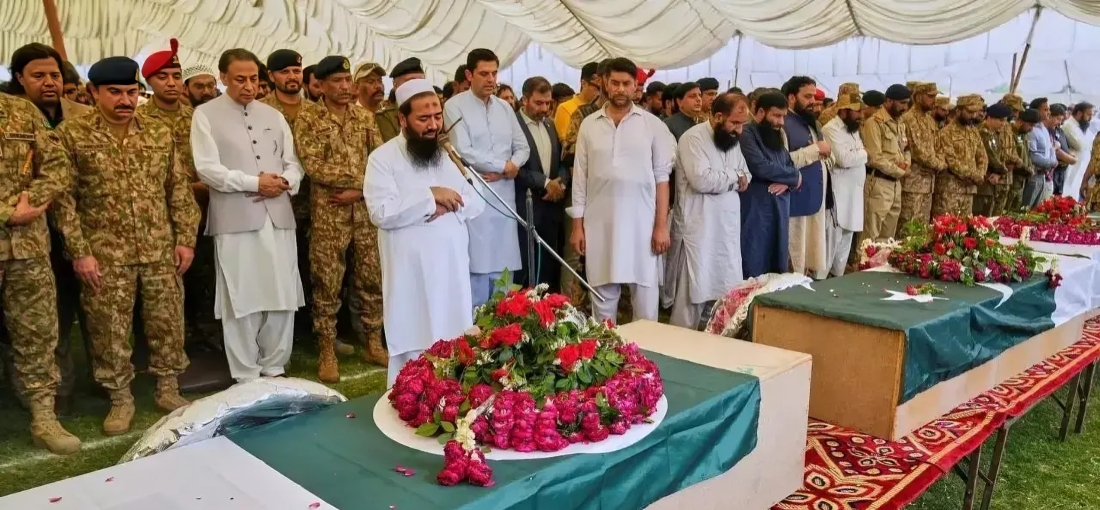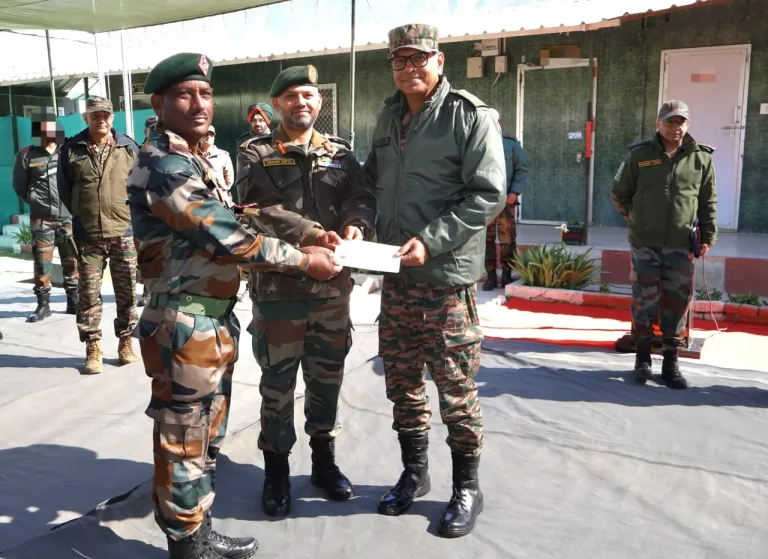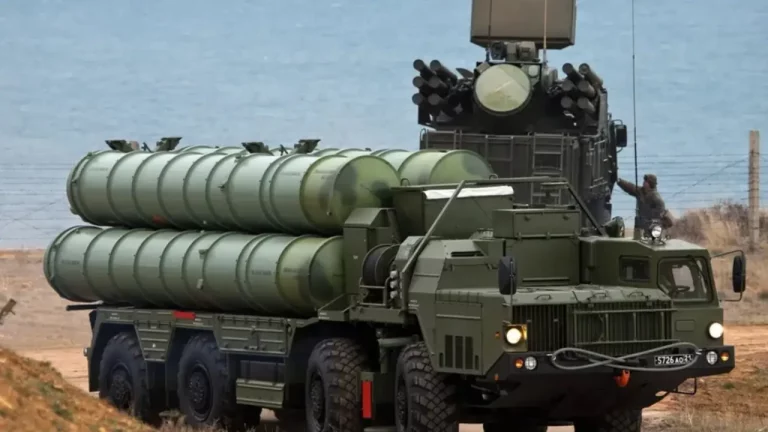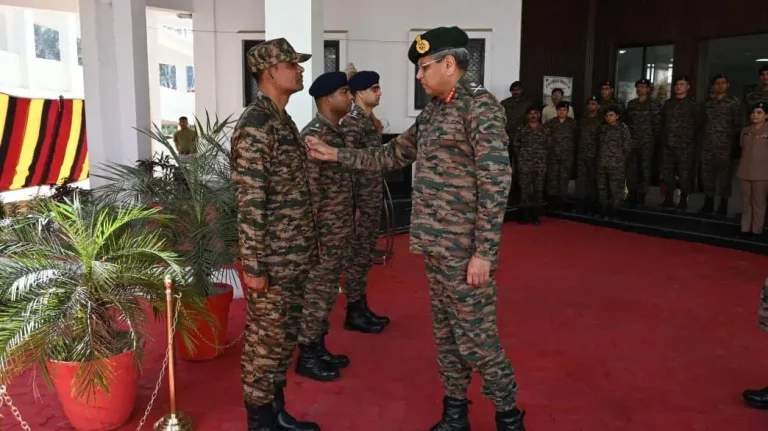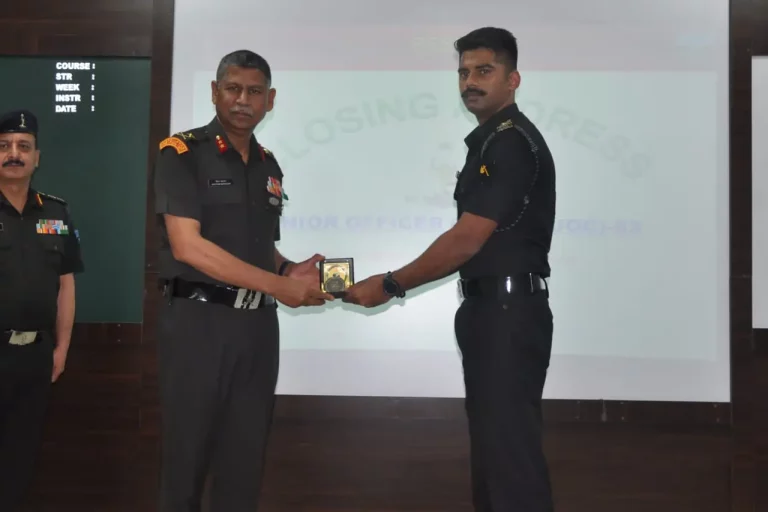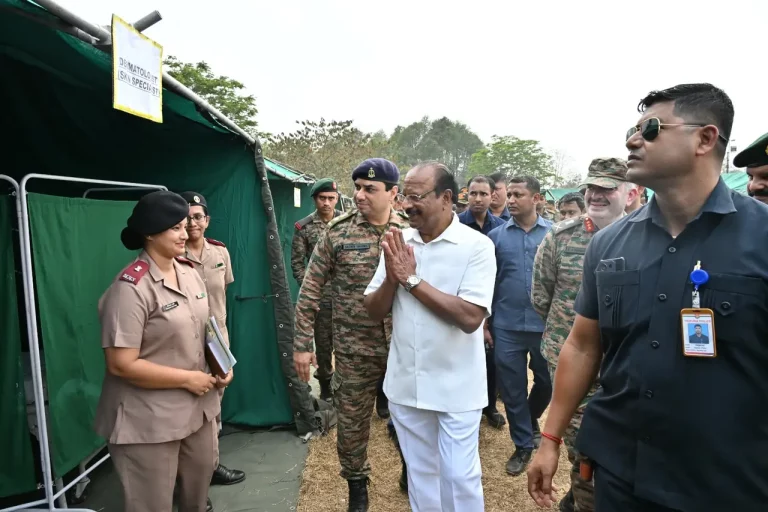In a significant development following the high-impact Operation Sindoor, India has released a detailed report revealing the presence of senior Pakistani military and political officials at the funeral of Hafiz Abdul Rauf, a top commander of Lashkar-e-Taiba (LeT) who was eliminated during the operation. This funeral took place at LeT’s headquarters in Muridke, Pakistan, just days after Indian forces targeted multiple terror infrastructure sites across Pakistan and Pakistan-occupied Kashmir (PoK) on May 7.
The attendees identified in India’s dossier include high-ranking officials such as Lieutenant General Fayyaz Hussain, Major General Rao Imran, Brigadier Mohd Furqan of the Pakistani Army, Inspector General of Punjab Police Dr. Usman Anwar, and Malik Sohaib Ahmed, a sitting member of Punjab’s Provincial Assembly. Indian authorities have condemned this gathering, deeming it “irrefutable proof” of Pakistan’s complicity in sponsoring and supporting terrorist groups like LeT.
Hafiz Abdul Rauf, one of five key LeT operatives killed in Operation Sindoor, was regarded as a high-value target with deep connections to numerous past attacks against India, including those carried out by The Resistance Front, which serves as LeT’s proxy group. The funeral, held at Markaz Taiba—a facility notorious for training terrorists like Ajmal Kasab and David Headley, who were behind the 2008 Mumbai terror attacks—was marked by ceremonial honors and significant state-level representation.
Operation Sindoor was launched as retaliation for the brutal Pahalgam massacre, where 26 civilians were killed by terrorists linked to LeT. The Indian military executed coordinated air and ground assaults targeting nine locations—five in PoK and four in Pakistan—significantly undermining key assets of LeT, JeM, and Hizbul Mujahideen.
An Indian defense official remarked, “This funeral was not just a mourning ceremony; it was a statement of state support,” highlighting verified visuals of Pakistani officers present at the event. The Muridke compound has long been considered a nerve center for LeT activities and remains under global scrutiny, with intelligence agencies connecting it directly to Pakistan’s Inter-Services Intelligence (ISI).
Despite being designated a terrorist organization by the United Nations, the U.S., India, and even Pakistan since 2002, LeT continues to operate with considerable freedom, often under the guise of its charity front, Jamaat-ud-Dawa (JuD). Analysts, including Bruce Riedel, have frequently warned that the infrastructural support provided by the state has given LeT a more extensive and dangerous reach than even Al-Qaeda.
The aftermath of Operation Sindoor has exacerbated Indo-Pak tensions, with Pakistan invoking Article 51 of the UN Charter to claim its right to self-defense. Reports indicate retaliatory shelling along the Line of Control (LoC), leading to additional civilian and military casualties on both sides.
India’s recent revelations are expected to amplify global criticism of Pakistan, particularly in light of impending FATF reviews, as Pakistan remains on the grey list. New Delhi has reiterated its calls for international action against state-sponsored terrorism, urging the global community to hold Pakistan accountable for its role in supporting such activities.
As global reactions start to emerge, India’s assertive stance indicates a renewed diplomatic effort to isolate terrorist networks and those who provide them sanctuary on the international stage.
